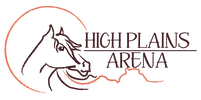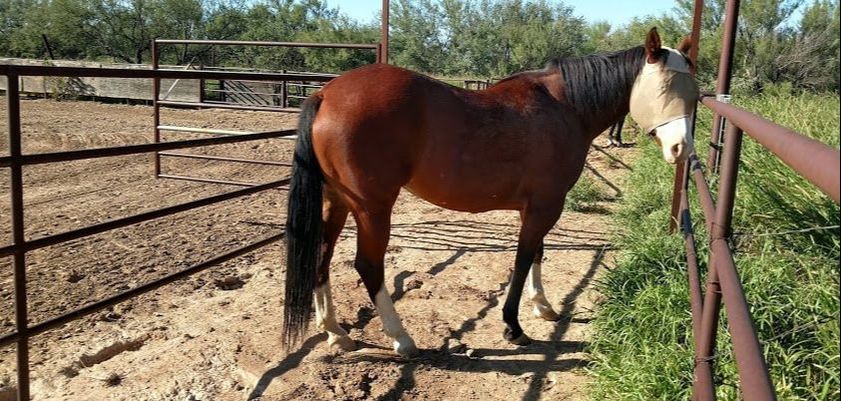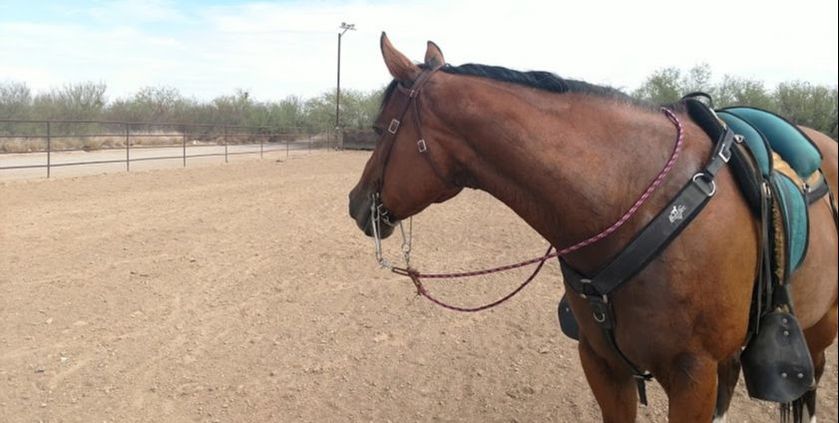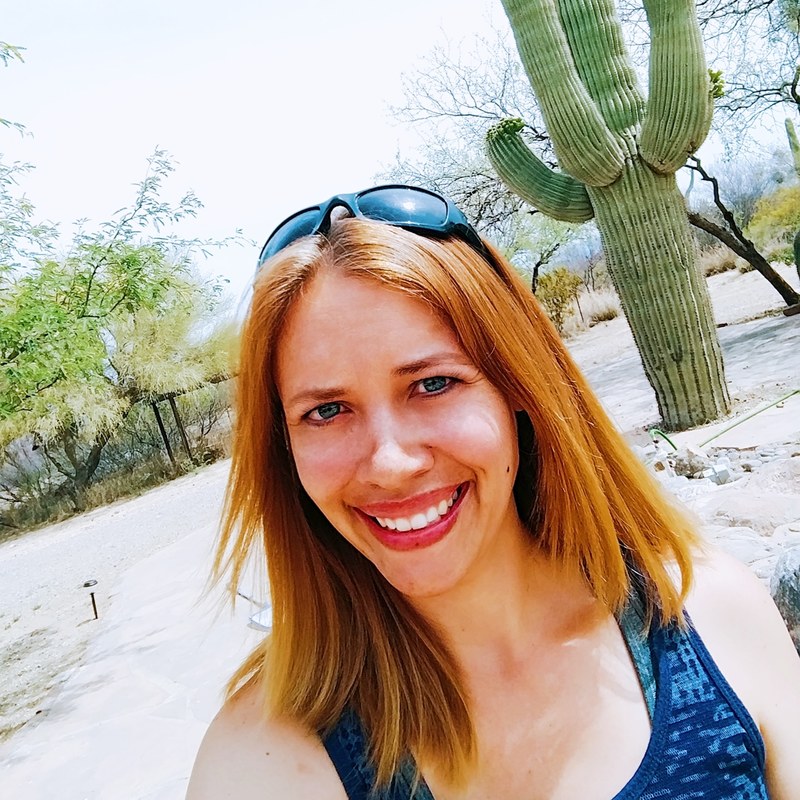|
This post may contain affiliate or sponsored links. Please read our Privacy Policy and Disclaimer.
When I was five years old, my great-grandmother took a trip to Arizona and sent me a postcard. On the front was a Navajo girl with her horse and dog, and my great-grandmother wrote to me that kids here are very poor and may only have a horse and dog and few other material things. She said this was very sad, but I looked at that postcard and thought that the girl on the front was very lucky because she had a horse AND a dog, and I wanted a horse more than anything. My parents always gave me the line that I could not have a horse because we could not afford one, but I really think I they did not let me have one because they were not horse people. They never denied me ways to fill my love of horses, and I had regular opportunities to ride and fuel my passion. I was one of those kids who traded chores in exchange for riding lessons, so I learned early on how much care a horse requires. What I did not learn until I bought my first horse in 2003 is how much a horse actually costs. This is what I spend on my horses each year and the costs you should budget for before you buy your first horse.
One-Time Costs
The first – and most significant – cost of owning a horse is the purchase of the horse itself. This can vary significantly, depending on your budget and your riding goals. My cheapest horse cost $125 at a sale in the dead of winter, and I have ridden horses that sold for six figures. Once you buy a horse, you also need to buy tack and equipment. Avoid cheap, low quality tack. At a minimum your horse needs a halter and lead rope. Weaver halters have lasted the longest at my Tucson horse boarding facility (buy one here) and I always use a cotton lead rope (buy it here) so that if the horse bolts the lead rope does not burn my hands. A good grooming kit is another essential, and again, Weaver Leather sells a quality, complete grooming kit that you can buy here. If you are going to ride your horse, you need a saddle that fits both of you, plus a saddle pad, bridle, and bit. Quality tack will last you a lifetime, so spend the money and buy name-brand items. You can really fall down the rabbit hole buying tack and equipment, so set a budget and stick to it.
Boarding
Once you purchase your horse, he needs a place to live. If your horse lives at home with you, then boarding will not figure into your expenses. The cost to board your horse varies greatly depending on where you live and the services offered. In major metropolitan areas, full-care boarding may be as much as $2,500 per month. In Tucson, I charge $275 to $325, for an annual cost of $3,300 to $3,900. This includes hay, but not grain or supplements. Hay If you keep your horse at home, you will have to buy hay unless you have access to year-round pasture. My horses live in a dry lot, so I feed hay year-round. How much hay does your horse eat per year? A horse eats approximately 2% of his body weight per day, so my 1,000-pound horse needs 20 pounds of hay per day. This means I need to buy 3.65 tons of hay per horse, but no matter how careful you are, you always have some hay waste. Four tons of hay per horse covers waste and does not leave me short. In Southern Arizona, alfalfa hay costs me $285 per ton, so I spend $1,140 per year per horse on hay. Grain My horses are easy keepers, so my grain costs are low. I feed Omolene 200, and my horses get 1 pound per feeding, for two pounds per day. One bag lasts one horse 25 days, so I need 15 bags per year. At $16 per bag, my grain cost is $240.
Supplements
My supplement costs have varied over the years, and I am lucky right now that the only one I feed is seven days of psyllium (buy it here) to prevent sand colic every month. When I lived in Montana, my horses developed chronic coughs from summer smoke, and they continued coughing into winter where bitter cold temperatures aggravated their respiratory problems. Through a lot of trial and error, I found a combination of Farnam Cough Free (buy it here), MSM (buy it here) and ground flax seed (buy it here) kept them breathing easy, but it got very expensive very quickly. Now, one bucket of Farnam Sand Clear (buy it here) lasts my horse two months, so my supplement cost is around $10 per month or $120 per year. If your horse is a bit stiff and you think he might benefit from a joint supplement, see Does My Horse Need a Joint Supplement? so that you can choose the right one for him. Hoof Care My farrier comes every eight weeks, and I currently keep my horses shod. A set of shoes costs $120, so my annual cost is $720 per year per horse. This cost can vary greatly if you keep your horse barefoot or if your horse needs special shoes. If your horse's hooves need some improvement, see Five Steps to Healthier Hooves for ways to improve his hoof health. Vaccinations and Worming Twice a year I give my horses a five-way vaccine plus West Nile Virus. I buy this at my local feed store and administer it myself, so that saves me my vet’s farm visit fee. The vaccine alone costs $45, so I spend $90 annually. For wormer, I buy an annual combination pack (buy it here) so that my horses get different active ingredients throughout the year for complete parasite control. You can buy an annual supply of wormer for a 1,100 pound horse here. My annual cost is around $60. Tack and Equipment Some tack will last you a lifetime, while other pieces wear out and need to be replaced. If you live in a cold climate, your horse may need a blanket, and these last only a few years. Rambo blankets lasted the longest in the bitter cold Montana winters, and you can buy one here. Less expensive blankets cost less up front but will need to be replaced sooner. Halters get stiff, lead ropes break, Velcro on sport boots wears out. Budget to replace these things as needed. I spend around $300 every year on upgraded tack and equipment for my horses.
Apparel
The only reason I own Western boots is because I have horses, so I count these as one of my horse expenses. My Durango boots (buy them here) last me about two years with heavy daily wear. They cost $120 new, so I spend $60 per year. I usually buy a few other pieces of riding apparel during the year, either shirts or breeches. I budget another $100 for this. If you need new riding shirts, see The Five Best Equestrian Shirts for Fall to see which brands give you the best value for your money. Veterinary Costs I have been lucky, and I have only had to call the veterinarian a few times for my horses, but this can get very expensive very quickly. Colic surgery costs $8,000 to $10,000. Teeth floating costs around $200. I keep a $1,500 veterinary emergency fund for each horse, and hopefully do not have to touch it. Insurance If your horse is extremely valuable, you may choose to insure him. These costs vary based on the coverage chosen and the horse’s age. The average premium cost for a horse valued at $15,000 with medical and mortality coverage is $488 per year.
Horse Trailer
I only have a horse trailer because I have horses, so I count this as one of my horse expenses. I paid $8,500 for my new-to-me used trailer in January this year, but I paid cash, so I do not have a payment. I do have comprehensive and collision insurance on it, though, and that costs me $26 per year. This is a very minimal cost for me, but well worth it. Priceless When I add all of my costs, each horse costs me $2,856 per year, or $238 per month. Like the Mastercard commercial says, really, having horses in my life is priceless. They keep me active, they keep me sane, and they add a value to my life that I cannot put a price on. What do you spend on your horses each year? Let me know in the comments below!
12 Comments
Jessica Dunn
11/19/2018 09:54:53 am
I think that this article is great! I'm hoping to have my own horse one day and this article really helped me get a good view on what it'd cost for me to have one. :)
Reply
Alissa Berry
11/19/2018 12:36:13 pm
I'm very left-brained so I like to have everything laid out in dollars and cents =) I've kept horses on a shoestring budget, and I've had the luxury of having them when I have a little more to spend. They keep me sane, and I tell my husband all the time that it's cheaper to have the horses than to go to therapy every week ;)
Reply
8/8/2019 03:22:43 pm
Mine have the magical talent of turning my paycheck into manure ;)
Reply
Cassidy Case
7/29/2020 09:43:51 pm
I am also budgeting and planning for a horse of my own someday and cannot wait for that day to come. Question, where do you get the money from if you don’t have a job?
Reply
7/30/2020 01:51:50 pm
Before I was old enough to have a job I was always hustling to make money. I babysat and tutored kids, walked dogs, mowed lawns, etc. In college, I donated plasma, night calved during calving season, and I got in the habit of walking through bar parking lots early in the morning (like 4 AM) looking for dropped money. My best night was $500 so it can be well worth your time!
Reply
Lia
8/23/2020 12:17:03 am
This really helped me know the real cost! (Even tho I'm probably not getting a horse for another 7 years since I'm young) so this really helped me know how much to set aside to get a horse one day!
Reply
Holly
5/31/2021 04:15:13 pm
This is a really good article and are you 12 by this was posted. Year ago and and other 6 years would make you 18 so start counting down just like I am. :)
Reply
LiA
6/10/2021 07:18:29 pm
Actually 14 XD now 15, O added in a few more years with college and making money and stuff
Emma
5/31/2021 04:17:51 pm
I’m guessing your 12 and I’m counting down the years till I get 4 and a mini farm so.... test start counting down they years together. =)
Reply
Hazel Smith
2/3/2022 06:32:39 pm
This was exactly what I needed!!! Thank you so much for writing this article!! I have been looking to buy a horse for years and really needed to put the cost into perspective. (Even though I probably won’t be able to buy one for a couple of years at least, sense i don’t have the money or a job right now. I’m only 15) I hope to have a horse in a couple years. Thank you again!
Reply
Leave a Reply. |
AuthorWelcome! I've been a freelance writer since 2002 and have numerous horse-related articles published in print and online publications. I have a Bachelor of Science degree from Rocky Mountain College with a major in Equestrian Studies and a minor in Business Management. My current business ventures include High Plains Arena and real estate investing. Archives
March 2019
Categories
All
|
Proudly powered by Weebly







 RSS Feed
RSS Feed